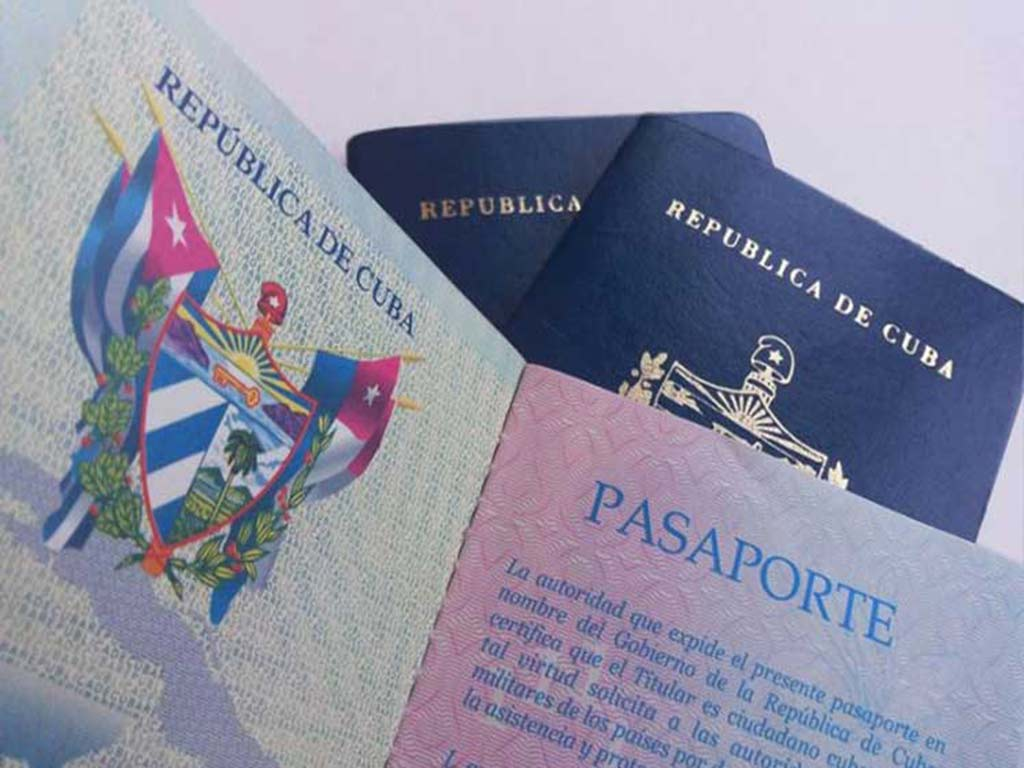
Havana, Feb 1st.- The general director of Consular Affairs and Cubans Living Abroad of the Ministry of Foreign Affairs and master in science Laura Pujol Torres explained on the television program Mesa Redonda the status of the new measures on Cuban passports, put into effect since last year.
“The announcement was made on May 16, 2023, coinciding with the stage of greatest intensification of the blockade in recent years, as a result of Trump's measures, which the Biden Government has applied with such discipline. All of this has an impact on the economic conditions of the country,” he stated.
Specifically, the following measures were taken:
- Reduction of the consular fee, particularly that of Cubans residing in the United States.
- Extension of passport validity, from six to 10 years. (Except in the case of minors, which is established at five years, taking into account the changes in physiognomy at that age).
- Elimination of the passport extension every two years and reducing the cost of passports at consulates.
- Necessity to carry a Cuban passport also for those people who had emigrated before 1971.
The measures have been applied as of July 1, creating a legal framework, published in the Official Gazette 48, where the regulations of the Cuban Migration Law were modified.
From date to date, 119,530 passports have been requested from abroad, according to recent data from the Immigration and Immigration Directorate of the Ministry of the Interior. Of them, 56,658 correspond to Cubans who did not have valid documents for more than six years.
“There is a notable impact. A large number of applications come from people who previously did not have the possibility of getting a passport,” Pujol commented.
He added that 43,771 Cubans who are temporarily abroad requested their passports from there.
“The 140 Cuban consular offices in 123 countries have had to absorb this increase, for the sake of work operability and so that the new regulations can really be used. Measures have been taken to prevent paperwork from accumulating and delays occurring,” the directive indicated.
Passports are requested from consulates. “This application travels to Cuba electronically and is completed here by the Directorate of Identification, Immigration and Immigration of the Ministry of the Interior. Then, the Ministry is in charge of sending it back to the Embassies and that is when they send it to the applicants,” he explained.
The measures have mainly benefited Cubans residing in the United States, where more than 83,000 passport applications have been registered.
In the United States there is only one consulate, which works with restrictions. “From these hostile conditions, services are provided to as many Cubans as possible. This means that services cannot be provided directly, but rather through a North American tertiary agency, which is responsible for the initial processing and final delivery of the passport, which slows down the process,” he stressed.
Another important issue is the requirement of a Cuban passport for all Cuban citizens who come to the country.
“This measure has been applied normally, without outbursts. "576 applications have been processed and 21 have been rejected, although work continues on identifying the people, because some left Cuba very young."
However, there has been flexibility in the treatment of those who emigrated before 1971. “More than 700 have traveled with a foreign passport. It was always said that this would be done gradually, as long as the conditions were created.
“Our goal is to make it possible for all who wish to visit or return to the homeland, in compliance with immigration regulations,” he concluded. (Cubadebate) (Photo: PL/Archive)